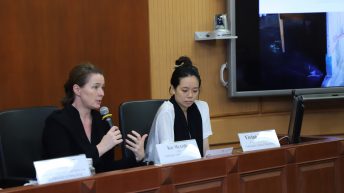Date: 08May 2015
This seminar analysed the situations in which issue estoppel may (or may not) be invoked in connection with applications for the refusal of recognition and enforcement of arbitration awards under the New York Convention. This is an issue which has become topical following the decisions in England in Diag Human SE v The Czech Republic [2014] EWHC 1639 (Comm) (Eder J) and in Hong Kong in Astro Nusantara International BV HCCT No.45 of 2010 (17 February 2015) (Chow J). In Diag, it was held that a decision of the Austrian Supreme Court that a Czech award was “not binding” created an issue estoppel in the context of enforcement proceedings in England. In Astro Nusantara, it was held that a party was estopped from belatedly resisting the enforcement of an award in Hong Kong, since that party had deliberately decided not to contest recognition and enforcement here at an earlier stage. This was despite the fact that, as against the relevant party, the award had been set aside by the Singapore Court of Appeal. Both decisions have been criticised by academic commentators as going against the principles that underpin the Model Law and New York Convention.
Sir Bernard Eder was appointed Justice of the High Court of England and Wales (Queen’s Bench Division) in 2011. There he sat in the Commercial Court and, from time to time, in the QBD, the Administrative Court and the Court of Appeal (Criminal Division), as well as on circuit in the Crown Courts. He retired from the English Judiciary on 2 April 2015. He graduated with a double-first in law from Cambridge in 1974 and was called to the Inner Temple in 1975. He practised from Essex Court Chambers for nearly 35 years, specialising in commercial litigation and international arbitration. He took silk in 1991. He acted as counsel in numerous foreign jurisdictions and sat as arbitrator in ICC, LCIA and LMAA arbitrations, as well as on an ad hoc basis. He was Visiting Professor at UCL (where he taught Shipping Law) between 1999 and 2003. He is currently Senior Editor of Scrutton on Charterparties and Bills of Lading.




